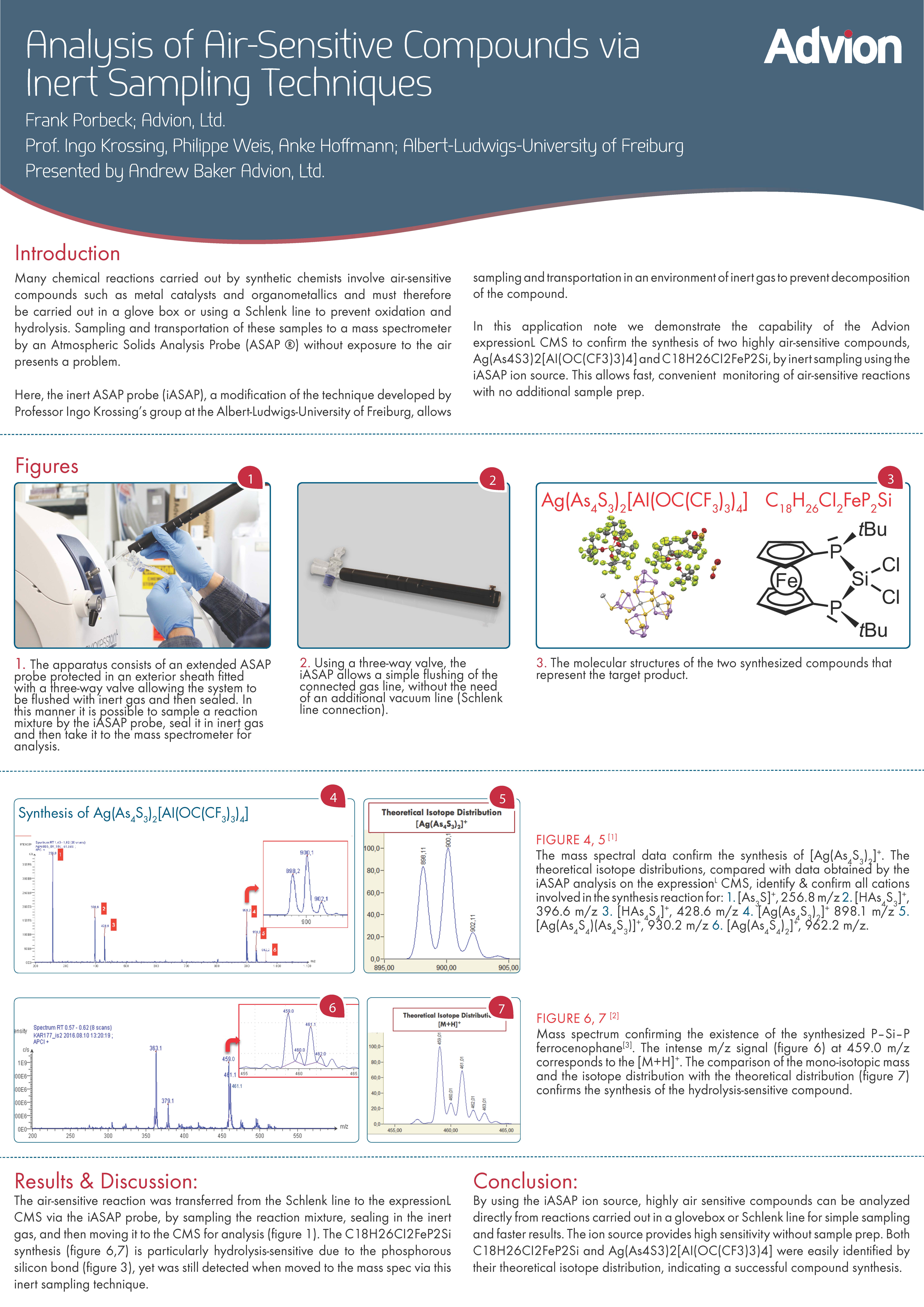Poster
Analysis of Air-Sensitive Compounds via Inert Sampling Techniques

Many chemical reactions carried out by synthetic chemists involve air-sensitive compounds such as metal catalysts and organometallics and must therefore be carried out in a glove box or using a Schlenk line to prevent oxidation and hydrolysis. Sampling and transportation of these samples to a mass spectrometer by an Atmospheric Solids Analysis Probe (ASAP®) without exposure to the air presents a problem.
Here, the inert ASAP probe (iASAP), a modification of the technique developed by Professor Ingo Krossing’s group at the Albert-Ludwigs-University of Freiburg, allows sampling and transportation in an environment of inert gas to prevent decomposition of the compound.
